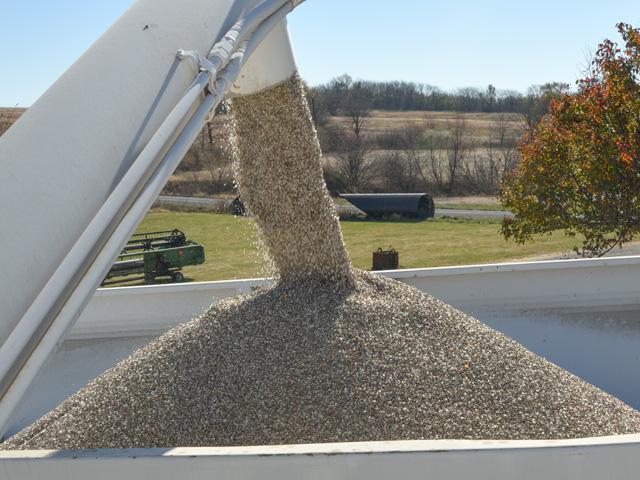Senators Press US Trade Rep on Fertilizer
Senators Press USTR's Tai to Develop Plans to Secure US Fertilizer Supplies
LINCOLN, Neb. (DTN) -- As farmers continue to see some of the highest-ever fertilizer prices, a group of four U.S. senators is pressing U.S. Trade Representative Katherine Tai to develop a plan to secure supplies for U.S. producers going forward.
The senators sent a letter on Tuesday to call on Tai to secure current and new relationships with countries that produce and supply fertilizers to U.S. farmers.
The letter was from Sens. Roger Marshall, R-Kansas; Charles Grassley, R-Iowa; Joni Ernst, R-Iowa; and Deb Fischer, R-Neb.
According to fertilizers prices tracked by DTN, last week three fertilizers recorded all-time-high prices: DAP had an average price of $1,059/ton, MAP $1,083/ton, and UAN32 $731/ton. (See https://www.dtnpf.com/…)
The senators stated in the letter the Biden administration needs to have a plan for the "long-term stability" of fertilizer trade for U.S. farmers.
"Vladimir Putin's war in Ukraine is sparking concerns over famine in Africa and the Middle East," they said.
"Societies dependent on agriculture are keenly aware of the threat of food insecurity. Big agrarian nations like Brazil are already acting to redraw global trade routes, especially regarding fertilizer, to ensure the productivity of their nation and address the needs of a starving world. We must do the same."
P[L1] D[0x0] M[300x250] OOP[F] ADUNIT[] T[]
The senators said although some believe current U.S. trading alliances will "indefinitely" meet U.S. fertilizer demands, "recent events have underscored the need to explore alternative suppliers. Several major global producers of different crop nutrients -- China, Russia, and Belarus -- have proven to be unreliable trading partners."
Currently, China leads global production of processed phosphates at 41%, while Russia and Belarus control about 36% of global potash production, the senators said.
"While the United States is also a major producer of nitrogen and phosphate, our farmers also rely on imports to fully meet demand, including reliance on Canada for potash," the senators stated.
"Other countries will likely look to Canada as the leading producer of potash. Additionally, Morocco is the second-largest producer of processed phosphates, accounting for 15% of global production."
The U.S. International Trade Commission imposed duties on imports of Moroccan phosphate, "resulting in exports from the country supplying markets other than our own," the senators said.
They said about 36% of the tradable supply of phosphate fertilizers is not subject to U.S. duties. In addition, the letter said the U.S. is in the process of imposing additional duties on urea ammonium nitrate from long-time suppliers Trinidad and Tobago.
"To believe these problems are only short-term is short-sighted," the senators said.
"Even if the war in Ukraine would end tomorrow, our relations with Russia will take decades to heal and may never be the same. China and India are positioning themselves to capture crop nutrient trade from Russia, which will leave a supply gap for western agriculture."
The letter said the U.S. "cannot be left scrambling in 2023 and beyond to find crop nutrients," and urged Tai to "begin working today to solve this inevitable challenge."
The senators pointed to the need to further expand fertilizer trade with Canada, as one part of the solution.
"We believe enhancing our fertilizer trading relationship with Canada should be a priority of the administration," the letter said.
"USTR should also consider negotiations to eliminate the cross-border vaccine mandate between the U.S. and Canada which is hindering the movement of goods. Second, we believe USTR should engage with China to reduce or eliminate their fertilizer-export restrictions, which decrease the supply of phosphates on the global market, driving prices up."
The senators called on the administration to eliminate barriers to crop nutrient imports, as well.
Todd Neeley can be reached at todd.neeley@dtn.com
Follow him on Twitter @DTNeeley
(c) Copyright 2022 DTN, LLC. All rights reserved.






